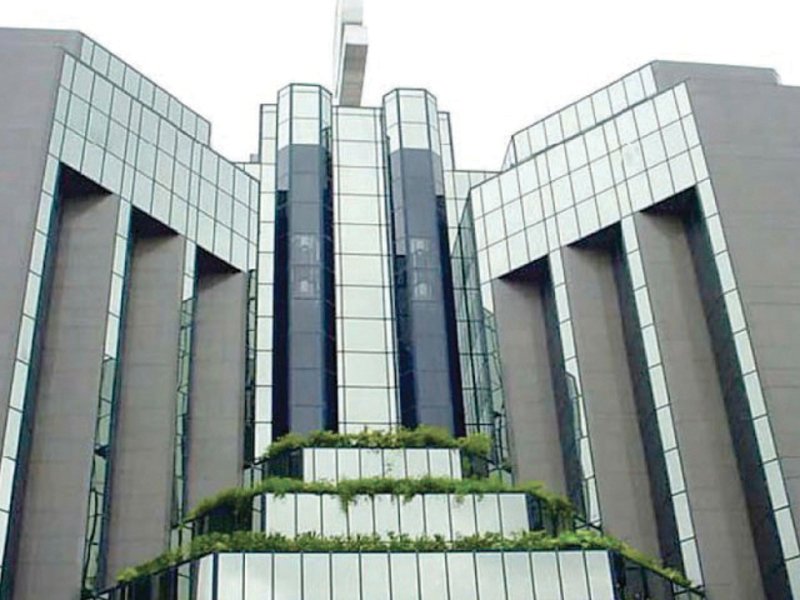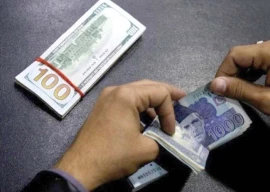
Pakistan State Oil (PSO) makes a tall official claim: “We are truly the drivers of economy of this country.”
The events of last few months show that it is dangerously true. PSO can single-handedly bring the economy to a grinding halt. The fuel run has demonstrated that it almost did that.
PSO is the only Pakistani company that has made it to the Forbes 2000 list. On this list, it is at number 841 in terms of sales, which were $11.59 billion as of May 2014. In 2012, PSO also became the first Pakistani company to cross the trillion-rupee mark. By turnover, it is the largest company of the country.
It was formed in 1976, as a result of merger and nationalisation of three independent oil companies. It has remained government-owned and government-run.
That effectively means that PSO is plagued by excessive government intervention and an independent assessment of its corporate performance may not be fair.

Notwithstanding, PSO now stands as the linchpin of Pakistan’s aggravated fuel crisis and also power crisis owing to its circular debt.
The company occupies more than 50% of the market share in all categories of oil, notably all furnace oil supplies to independent power producers.
Choking of its supply lines is bound to bring unanticipated pressure on substitute suppliers, and an oil run is likely to be created in this case. Last week, the nation thus observed a painful oil run with people running with cash in their hands and stranded with empty fuel tanks.
Credit unworthy
Thanks to continued government ownership, PSO has now become too big to fail. Its default, imminent according to capital market observers, is likely to have an industry-wide impact.
PSO has become credit unworthy. It has exhausted its letters of credit (LC) and its suppliers have refused to oblige with credit supplies.
“PSO has exhausted its borrowing limits, defaulted on payment of Rs46 billion against the LCs, and LC lines against Rs93 billion have been consequently blocked,” says a letter sent by the company’s managing director to the petroleum secretary on December 24.
It ends by asking for urgent release of Rs68 billion to “avoid an imminent supply chain breakdown.”
Just one year ago, Pacra upgraded PSO’s credit rating from ‘stable’ to ‘positive’ with ‘AA+’ and ‘A1+’ long-term and short-term ratings. Pacra got it all wrong. While PSO proudly mentions that its earnings per share have risen from Rs46 to Rs80 last year, its financial health remains dependent on government relations. Indeed, what is being dubbed in media as bailout to PSO, is in fact deferred payment.
Dominant supplier
Besides supplying fuel to national power utilities like Wapda and K-Electric, PSO is the sole furnace oil supplier to all independent power producers (IPPs) with a share of over 80% in furnace oil market. PSO’s industrial consumer dominance in the government sector can be judged from the fact that all the major state entities like OGDC, Pakistan Army, Pakistan Railways, Navy, National Logistics Cell, PAF Wah and Heavy Industries Taxila have entrusted the oil marketing company to meet their needs.
PSO is also a scapegoat. The prime minister, by suspending top officials of the Ministry of Petroleum, has played to the gallery. This is what a strong and determined prime minister needs to announce with immediate effect. He should halt all political appointments and interventions in the company and allow its corporate affairs to be run by an independent board. He should allow the IPPs to import furnace oil from any source instead of giving this monopoly to PSO.
Similarly, he should order all government entities, military included, to diversify their fuel purchases. Also, all government entities must be instructed to do their purchases in cash, or with a 30-day credit. The government may retain ownership of PSO during the crisis, however, it must gradually consider dividing the entity into distinct business units, and thereby follow a very flexible divestment approach.
The writer is the executive director of PRIME Institute, an independent think tank based in Islamabad
Published in The Express Tribune, January 26th, 2015.
Like Business on Facebook, follow @TribuneBiz on Twitter to stay informed and join in the conversation.
COMMENTS (8)
Comments are moderated and generally will be posted if they are on-topic and not abusive.
For more information, please see our Comments FAQ

1731329418-0/BeFunky-collage-(39)1731329418-0-165x106.webp)















The reality is that we're not in the habit of paying our bills...
Ali Salman has been serving the nation by pointing out the root causes of the ailing economy. PSO is one of them. Infact a lot should be done from increasing electricity price to actual levels, to privatizing DISCOS, GENCOS, OMCs and other state run organizations ( carefully and gradually). Privatizing, in literal means , sounds a simple auction, but in effect, it means complete change of economic ideology and practices.Keeping in mind the market share and responsibility level of the state owned organizations, we can predict that result oriented nature of private businesses and the competitive atmosphere will transform ( stream line) the economy and, let me add, our society, due to the change of generation of resources from government to the market.
The analysis has been provided without understanding complex relationship between Govt, IPPs and fuel supplier (PSO). These IPPs came into existence mostly as foreign investments in nineties under the, then established, power policy. This IPPs were guaranteed a fixed return for their investments, guaranteed uptake of their output by WAPDA and KESC, and guaranteed fuel supply from the supplier under the Fuel Supply Agreement with government guarantees built in in all contracts. Those contracts cannot be upended, just because the author wants them to. The system worked perfectly well till the time time the oil prices were stable. As soon as oil prices shot up, and thus driving up FO prices, govt was unable and unwilling to pass on the increased cost to end consumers. PSO became the prime victim as it purchases FO from international markets and sells to IPPs, but the cash never arrives. The problems which started in 2003, has now culminated in a full blown run on petrol because PSO is cash strapped. The author quotes EPS, revenue etc which is misleading, as these measures have nothing to do with liquidity and solvency of the company. The problem can only end if govt takes a difficult political decision of increasing electricity prices to match cost in the short term. In the long run the government should work on changing the energy mix so that most electricity is derived from hydel resoucres so consumers are shielded from oil price fluctuations.
A giant here.
Long story short: Pay your bills!!
Excellent piece of work.
I will like to share my thought process concerning the financial position of Pakistan State Oil Company Limited in general and its credit rating in particular. Firstly, assigning a "Positive Outlook" to any entity's credit rating is not an upgrade. This implies that the view on the rating is positive and if the requisite KPIs materialize, as envisaged, it may lead to an upgrade of the rating. Secondly, the key rating driver for this positive outlook to translate into a rating upgrade was envisaged to be improvement in the company's cash flows amidst retirement of the circular debt by the incumbent government in FY13. However, this was subject to the timely implementation of planned reforms being contemplated by the GoP to resolve the persistent issues in the country's power chain like theft, T&D losses, gross inefficiencies at Discos etc. Though a short-term gain was imminent; whereby the earnings of the company improved substantially. However, implementation of the above in true letter and spirit, were trivial for a lasting solution of the issues prevailing in the country's energy chain. PSO, mired by the burgeoning circular debt, has been using its financial strength to absorb the un-relentless pressure exerted to finance the same on the government's behalf. Whilst on the other hand, the government, baffled by increasing deficits and debt burden, has used PSO as financing arm to keep supplying fuel oil to defaulting Independent Power Producers and other power companies. The culprits – nepotism of bureaucracy in fixing loopholes of the power sector, ministers for their inaction, thieves amongst the masses and industries, and regulators for their short-sightedness – have, like always, have chosen the easy way out. The government, like in the past, has resorted to fixing the tumour without treating the cancer spread across the energy chain of the country. The solution to this turmoil lies in tilting the energy mix to low cost sources, building dams, galvanising the bureaucracy aimed at saving the national exchequer, and taking responsibility for actions in the best interest of the country. Thirdly, the writer has been absolutely spot-on wherein PSO has been termed as too big to fail. Herein, the amount of financial exposure provided by the domestic commercial banks is substantial; classifying PSO would exert immense pressure on the entire banking sector. Huge provisioning requirements would push the banking sector back into a financial distress. Lastly, i would like to complete my analysis with stating that PSO has been made a scapegoat.
Link of PACRA's press release and PSO's financials to support claims made above have been pasted.
http://psopk.com/investors/financialreports.php http://www.pacra.com.pk/uploads/pressrelease/prpso16jan14.pdf
Bankruptcy is when you don't have enough cash to meet your obligations. A company can be very profitable but if it has poor cash flow it can go bankrupt. PSO is just such a company. It'll continue to limp along. Just another government owned zombie like PIA and PSM.